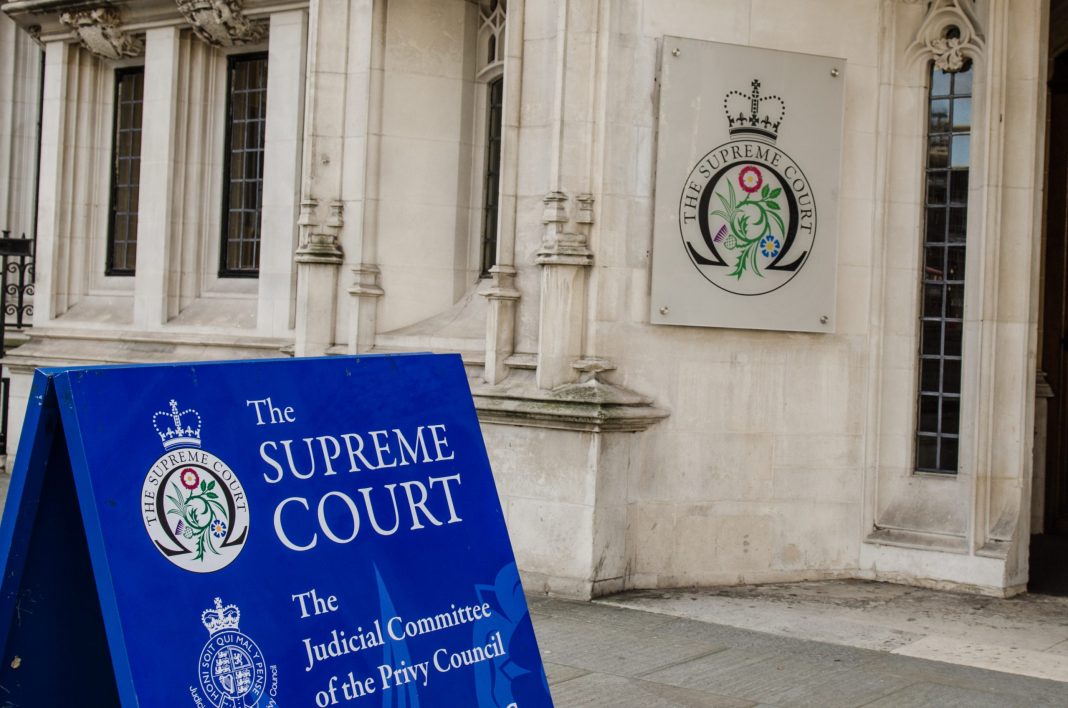After nearly four years of uncertainty and negotiations, the UK and the EU struck a Brexit deal on 24 December 2020 and ended all speculations of a no-deal Brexit. The last-minute deal will facilitate relations between the UK and the EU in many areas, such as trade, transportation, immigration and the judiciary. The new cooperation between the UK and the EU is defined within a new framework of law enforcement and judicial cooperation regarding civil law and criminal issues. But since the UK is leaving the EU after more than four decades, there are complexities about how domestic courts will adjust to the domestic and EU-related issues in the future.
According to a chief Brexit negotiator, the new Brexit allows the UK to set its own laws again. Lord Frost said that the European Court of Justice will no longer play a part in the UK and EU law no longer influences Britain directly. There are no more arrangements with Brussels, and he described the Brexit trade deal as “a moment of national renewal”. Boris Johnson’s government was seeking to strike a Brexit deal to take control of UK laws and borders, as it is claimed. The Conservative Party gives assurances that a judicial review could be offered to protect the rights of the people against a domineering state and make sure that it is not exploited in politics. The post-Brexit time can be demanding for the courts due to the volume and complication of cases related to Brexit. But the judges might enter obscurity and as promised by the Conservative Party Manifesto, there can be constitutional reform and the possibility of judicial review as the first stage of a review of multiple constitutional issues.
The new agreement recognises the necessity of solid mutual cooperation between the national police and judicial authorities, especially in crime and terrorism on the two sides of the EU-UK border. This new kind of cooperation provides new possibilities, but since the UK is no longer an EU member state, it cannot use its facilities as it did in the past. According to the new deal, the UK will remain in the European Convention of Human Rights; therefore, rules and principles are the same for both sides. If the UK violates its commitment to the European Convention of Human Rights, the EU legally reserves the right to suspend the Brexit deal and security ties between London and Brussels.
Britain did not want to be under the jurisdiction of the European Court of Justice anymore; but the EU wanted to keep this like before, because if the block sees any challenges against the European consumers and businesses by the UK, it can demand sanctions against Britain. As for the European Court of Justice, the UK got its demand of a “binding enforcement and dispute settlement mechanism”. That is, businesses in the UK and the EU are able to compete and prevent either side from using its regulatory powers to back subsidies and engage in unfair competition. If either side violates the agreement, they can participate in “cross sector retaliation ”. This measure is a dispute settlement mechanism which must meet many requirements. Sometimes, there may be an impractical situation where retaliation would not be useful in the same area so the complainant can ask for authorisation to retaliate in the other sectors or under other agreements. In fact, retaliatory measures may be taken in other fields and it is a safeguard against the violation of an agreement by one party.
In his article, the author of Statutory Interpretation and the Role of the Courts after Brexit, Martin Brenncke, writes that since the UK is supposed to have a clear break from EU law with Brexit, the details of the legislative scheme are in many fields contradictory. The EU Withdrawal Act of 2018 has a strong setting in which legal endurance has the outcome that after exit day national law will remain significantly interrelated with EU law. The author reveals that the 2018 Act regulates relations between the courts and Parliament in a manner that is not predicted. Being a member of the EU formed this bond and Brexit does not necessarily mean that it will be updated. This Act is capable of reinforcing the “institutional and constitutional” status of the courts.
According to this paper, the EU Withdrawal Act creates new obligations that will have an important impact on statutory interpretation and also on the duty of the courts in the UK after Brexit. These new obligations are still vague and ambiguous. It is claimed that an EU member’s withdrawal will lead to a period of long uncertainty and that perhaps the UK will enter a decade of uncertainty. This is true to some extent because the EU Withdrawal Act increases the level of uncertainty and complexity of statutory interpretation after the exit takes place as compared to the time before the exit. The EU Withdrawal Act can reinforce rather than weaken the “institutional and constitutional role of the courts”. If the position of Parliament is weakened in the constitutional outlook, it is not limited to Parliament’s connection with the judiciary, but also with the executive branch.
A major challenge is posed to the UK courts and legal system by Brexit and proceeding Brexit in the situations of a hung Parliament posed significant challenges to the UK judiciary. These challenges were caused by the Fixed Term Parliaments Act 2011 and the pro-EU MPs’ desire to prevent a no-deal Brexit. In fact, MPs who wanted to challenge the delivery of Brexit used the courts issue because this was a major venue in which to challenge its delivery. Britain has been a member of the EU for more than four decades, so the withdrawal is complicated when it comes to the courts and judiciary. The UK’s judges may well be busy for a challenging decade ahead, to start reforms in the legal system in order to gain the judicial review the conservatives vowed for the UK legal system.

